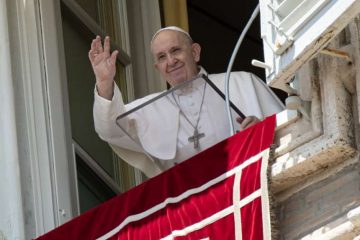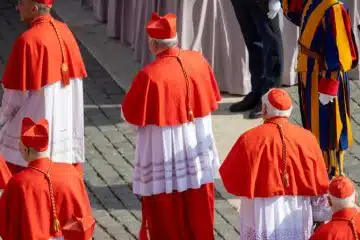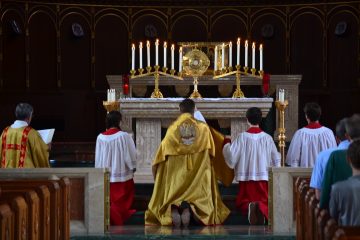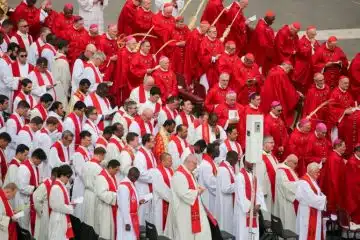Sunday Scripture: Christ is the power and the wisdom of God
Wednesday, March 11, 2009
By Sister Betty J. Lillie, S.C.
Exodus 20:1-17; Psalms 19: 8-11; 1 Corinthians 1:22-25; Jn 2: 13-25
In the fullness of time when Divine Wisdom became incarnate in the Person of Jesus, a new and deeper wisdom came into the world through God’s Spirit. Before then, Jews looked for signs and Greeks sought the wisdom of intellectual development.
That process was turned into a completely different direction with Paul’s proclamation of Christ crucified. That was a stumbling block to Jews and foolishness to Greeks. Who would have thought that a god would be crucified and die?
Those who were called to faith in Jesus learned that Christ is the power of God and the wisdom of God. God’s way of working is different from human ways. What some would have thought to be foolishness on God’s part was actually wiser that human wisdom. What seemed to be weakness on God’s part was stronger than human strength. By faith the ways of human understanding were turned around. The powerful and wise of this world were not automatically the elect, but those were called who by human standards were thought to be weak and unacceptable. They were the ones who by their call to salvation put the worldly wise to shame.
We look now at the first reading that involves the stipulations of our relationship with the Lord. The covenant of God with His chosen people sets His law in the context of the liberation of His people from domination by Egypt. This is seen as a redemptive act that became the basis of the idea that God is a jealous God. He wants His people to be wholly His own. Love of God and of neighbor binds them to one another and to himself. He will not tolerate any deviation from Him in their practice of the covenant.
So, in Paul’s preaching the concept of wisdom got completely turned around. Also, in the covenant God made with His people at Sinai, the idea of absolute monotheism was an innovation that was in sharp contrast to the polytheism that prevailed in cultures surrounding the land of Israel. The prohibition of images was unique in the ancient Near East and thus presented an entirely different view of how Israel’s God was to be worshiped.
Thus when Jesus came into the temple of Jerusalem His expectations of what was not supposed to be happening there interjected a different approach to the purpose of the Holy Place. Calling it His Father’s house was an assertion of His claim to Lordship. Then the play on the word temple as the temple of His body raised questions about what He could possibly mean. But even though some believed in Him, Jesus did not trust himself to them. He knew full well how the tables would turn when the chips were down!
The whole scenario in our readings for this week is a series of unexpected developments that only fell in place through faith in Jesus’ teachings. As the Psalmist prays, “The law of the Lord is perfect…; the testimony of the Lord is sure, making wise the simple.”
Sister Betty Jane Lillie is a faculty member at the Athenaeum of Ohio.









